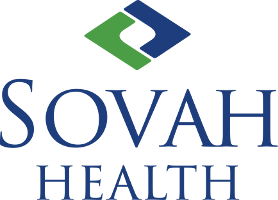Colon Screenings
To schedule your colon screening, call 844.GO.SOVAH (467.6824)
Colon Cancer Prevention
According to the American Cancer Society, colorectal cancers are the third most commonly diagnosed cancer in the United States. Early detection is crucial. Regular colonoscopies starting at age 45 are recommended for both men and women to help prevent this disease.
Regular cancer screenings are crucial for early detection and prevention. By identifying and removing precancerous growths, screening can significantly reduce cancer risk. Colonoscopies are an effective screening tool for colorectal cancer. This procedure allows doctors to find and remove polyps before they turn into cancer, greatly improving treatment outcomes.
Talk with your doctor about your colorectal cancer risks and discuss when a colonoscopy could be right for you.
TAKE A COLON HEALTH ASSESSMENT
What Are the Symptoms of Colorectal Cancer?
In early stages, colorectal cancers are often symptomless, which is why screening is so important. While 90% of new cases occur in people 50 or older, colorectal cancers do not discriminate and can happen to men and women at any age.
See your doctor if you have any of these warning signs:
-
-
- A change in your bowel habits, including diarrhea or constipation, or a change in the consistency of your stool
- An urge to have a bowel movement when the bowel is empty
- Bleeding from the rectum
- Blood in the stool or in the toilet after a bowel movement
- Constipation or diarrhea that lasts for more than a few days
- Decreased appetite, nausea or vomiting
- Persistent cramping or discomfort in the lower abdomen
- Unintentional weight loss
-
While these symptoms also can be associated with other health conditions, your doctor can help you determine the cause.
Preventing Colorectal Cancer
Screening is the number one way you can reduce your risk of colorectal cancer.
Most cases of colorectal cancers begin as small, noncancerous clumps of cells called adenomatous polyps. Over time some of these polyps become cancerous. Screening helps physicians detect and remove polyps to prevent cancer from occurring.
Proactively preventing colorectal cancer also involves a healthy lifestyle. Daily exercise, maintaining a healthy diet and weight, limiting alcohol intake, and not smoking all can reduce your risk of colorectal and many other forms of cancer.
Knowing your family history is also helpful. Those with an immediate relative (parent, sibling or offspring) diagnosed with colorectal cancer are 2-3X more likely to develop the disease.
What to Expect During a Screening or Colonoscopy
If you're older than 50, high risk or symptomatic, it’s important to talk to your doctor about getting checked.
Colonoscopies are easier procedures than many realize. Shortly before the procedure, you will likely be given pain medication and a sedative to minimize discomfort during the colonoscopy.
During the procedure, any polyps found will be removed by the doctor and tissue samples will be sent for biopsy. The procedure typically lasts 30 minutes to an hour.
Keep in mind that you will need to follow a special diet the day before your colonoscopy and have someone available to take you home after it is over.
Find A Provider
Schedule an appointment with one of our providers
